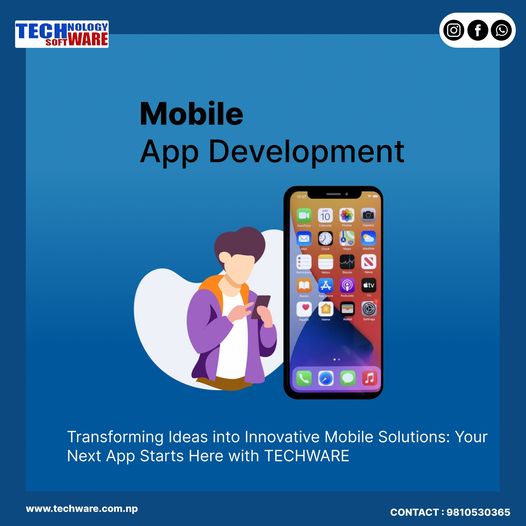Mobile Application Development
A software application specifically designed to run on mobile devices such as smartphones and tablets. These apps are developed to provide users with a variety of services, functionalities, or entertainment options, enhancing the overall usability and experience of mobile devices. Here are some key features of mobile apps:
Platform Compatibility:
- Mobile apps are designed to run on specific operating systems, such as iOS for Apple devices or Android for a wide range of smartphones and tablets. Some apps may also be available for other platforms like Windows or cross-platform development frameworks.
User Interface (UI) Design:
- Mobile apps have user-friendly interfaces optimized for smaller screens. The design focuses on simplicity, easy navigation, and intuitive interactions to ensure a seamless user experience.
Offline Functionality:
- Many mobile apps are capable of functioning offline or with limited connectivity. Users can access certain features or content without a continuous internet connection, enhancing convenience and accessibility.
Push Notifications:
- Apps often utilize push notifications to keep users informed about updates, new content, or relevant information. This feature helps engage users and encourages them to revisit the app.
Integration with Device Features:
- Mobile apps can leverage various device features, such as the camera, GPS, accelerometer, gyroscope, and more. This integration allows for enhanced functionalities and a personalized user experience.
Security Measures:
- Mobile apps implement security measures to protect user data and ensure a secure environment. This includes secure login methods, data encryption, and adherence to privacy regulations.
Updates and Upgrades:
- Developers regularly release updates to improve app performance, fix bugs, and introduce new features. Users are encouraged to keep their apps up to date to benefit from the latest improvements.
Customization and Personalization:
- Many apps offer customization options, allowing users to tailor the app's appearance or settings to their preferences. Personalization features enhance user engagement and satisfaction.
Social Media Integration:
- To facilitate sharing and connectivity, mobile apps often integrate with social media platforms. Users can easily share content, achievements, or updates with their social network.
In-App Purchases and Monetization:
- Some apps offer additional features or content through in-app purchases. This monetization strategy allows developers to generate revenue while providing a free or ad-supported version of the app.
Overall, mobile apps are versatile tools that cater to a wide range of needs, from productivity and communication to entertainment and lifestyle enhancements. Their features continue to evolve, driven by advancements in technology and the ever-changing demands of users.

